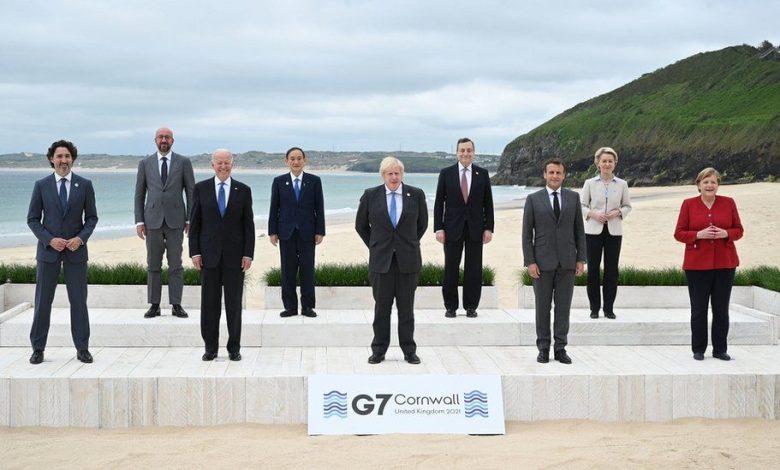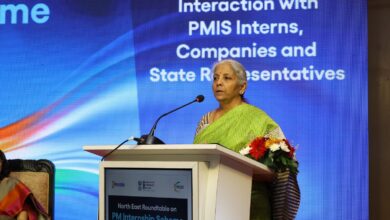G7 Leaders Failed To Tackle Triple Crises Of Climate, COVID And Nature

The Group of Seven(G7) is an organisation of the world’s seven largest so-called advanced economies. They are Canada, France, Germany, Italy, Japan, the UK and the United States.
Representatives from the European Union are present while India, South Korea and Australia have also been invited this year’s G7 Summit which took place in Cornwall from Friday 11 to Sunday 13 June.
The UK government thought it was important for world leaders to meet in person. The G7 leaders had a historic opportunity to tackle the triple crises of climate, COVID and collapse of nature.
But They had blown it, If they cannot get their act together by the October G20, COP26 is doomed to fail – that’s the take of leading analysts as the 2021 Cornwall summit wraps up.
Challenged to meet 2010 promises on climate finance, ensure the developing world was fully vaccinated by 2022 and restructure the debt hold facing African, Asian and Latin nations – they fell well short. The September UN General Assembly is now set as the key date for G7 leaders to deliver ahead of COP26.
Jennifer Morgan – Executive Director, Greenpeace, said “Everyone is being hit by COVID-19 and worsening climate impacts, but it is the most vulnerable who are fairing the worst due to G7 leaders sleeping on the job. We need authentic leadership and that means treating the pandemic and the climate crisis for what they are: an interconnected inequality emergency. The G7 have failed to set us up for a successful COP26 as trust is sorely lacking between rich and developing countries. Rebuilding this essential multilateral trust means supporting the TRIPS waiver for a People’s Vaccine, delivering on commitments for climate finance for the most vulnerable countries, and kicking fossil fuels out of politics once and for all.”
Rachel Kyte, Dean – Tufts Fletcher School & former UN climate envoy, said “G7 leaders served us a bad pasty. On the outside the deal looks good – but there’s little detail on the inside. Details matter especially in a low trust environment. Now the G7 members have to use every other moment this year to deliver the detail that makes the scale of support for others possible to secure breakthroughs at COP26.
“We need a detailed plan for making the $100 billion a reality by the UN General Assembly. It’s a big year for climate diplomacy and the G7 members will have to hit high notes at the G20 finance meeting in July, UNGA in September, COP15 in Kunming, the IMF/World Bank annual meetings and G20 in October before arriving in Glasgow in November.”
Tasneem Essop – Executive Director, Climate Action International, said “Unforgivable. Short-sighted. Selfish. The outcomes from the G7 Summit simply do not measure up to address the twin global crises the world faces: a historic pandemic that has taken four million lives and threatens billions more, particularly unvaccinated populations in the global south; and increasingly devastating climate impacts and loss and damage tied to a destructive dependence on fossil fuels, including oil and gas.
“The richest nations must urgently agree to remove patents on Covid19 vaccines and treatments and implement a plan to provide resources and technology to ramp up vaccine manufacturing globally. Donating vaccine doses, however good the intention, does not constitute an efficient, equitable or rapid path to end this pandemic.
“On climate finance, the $100bn promised a decade ago is the minimum of what is needed to build trust before COP26 and meet past obligations. Rich countries must go beyond reiterating existing obligations and put new and additional finance on the table. Let us remember, the $100bn is not a one-off payment. It is a continuing annual commitment as agreed to in the Paris Agreement for rich countries to do their fair share and mobilise finance in the trillions if we are to keep warming to 1.5C degrees within this decade.”
The good news from Cornwall is that tackling climate change was inextricably woven through every agenda item. Each G7 country did commit to increase and improve climate finance through to 2025, but only a few offered clear new pledges. Canada was also among those countries to hike climate finance contributions, – while others said they will review pledges pre COP26.
Leaders did agree to end the public financing of coal by 2021 – with Canada, Germany, the UK, and the United States agreeing to back a $2 billion coal transition fund. The deal leaves China isolated as the world’s biggest public backer of the world’s dirtiest fossil fuel.
G7 leaders offered a vision of a green alternative to China’s Belt and Road – but the G7 ‘Marshall Plan’ or ‘Build Back Better World’ initiative urgently needs details, which should be delivered by the UN General Assembly in September.
Bernice Lee – Hoffmann Distinguished Fellow for sustainability and Research Director — Futures at Chatham House, said ‘It’s good to see G7 turning their back on coal – but words are not enough. They now need to get serious about a global clean partnership that delivers for developing nations. Given the multiple crises we face, the G7 and China will have to be partners through the 2020s – if Beijing and leaders in Cornwall cannot find a way to cooperate, we’re facing a bleak future’
Alden Meyer – Senior Associate, E3G said ‘’The Build Back Better World initiative is long on rhetoric, but short on details on how they will mobilize the trillions of dollars required to meet its goals. G7 leaders leave Cornwall with lots of homework to do in the run-up to the climate summit in Glasgow this November, if they are to show the leadership the world so desperately needs to confront the climate emergency.”
The mixed outcome places huge pressure on the shoulders of Italy Prime Minister Mario Draghi, who will steer G20 talks that commence in July – with a finance meeting in Venice now set as a critical moment ahead of COP26.
Dr.Seema Javed is an Environmentalist, Independent Journalist & Strategic Communicator for Climate Change




